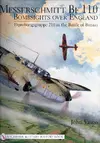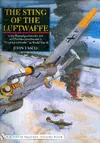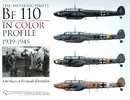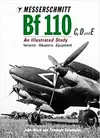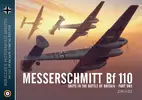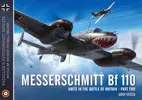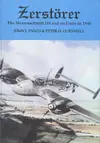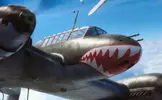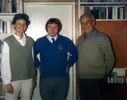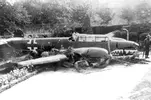@Rita_Poon You gave a 'wow' to my accont of the attack on Manston on 14th August 1940. Of the two crews shot down, only one survived, Ewald Schank. I tracked him down in the 1980s, and he very kindly gave me this account of his being shot down:
“At 7 o’clock on 14.8.40 we left our airfield with our Staffel for Marck airfield near Calais. From there we were supposed to take off for a mission at 1100 hours. Because of bad weather, take off was put back until mid-day. Two Staffeln took off, about 7-9 machines, with Me 110 and Me 109 as escort. Our aircraft carried two 500 kg incendiary bombs. During the flight over the Channel two aircraft had to turn back with engine trouble.
“At a height of about 3,000 m. the Staffel began a diving attack in order to hit the target. After the bombs had been dropped, we pulled our machine higher. In the same instant, our aircraft received a heavy blow from below, probably a hit from the ‘Flak’. Because of this, the aircraft was damaged and crashed. I was thrown out of the machine, but remained attached to the aircraft by a boot. Without thinking, I freed myself from the boot. When I was free of the aircraft, I operated my parachute. Shortly after the parachute opened, I landed heavily on the hard red tarmac. I quickly released my parachute, as it pulled me towards a large fire. When I stood up, I realised I was missing a boot, and was wounded in the head. As I looked around, I noticed pieces of aircraft, undercarriage, a wheel, and bits of the fuselage. The rest of the aircraft was smashed into the red tarmac not far away.
“I dragged myself through the wreckage to search for the pilot, but could see nothing. As I was all alone and helpless on the runway, three men in blue uniforms came. I did not know, or understand, any English words at that time. I said to the soldiers in German: “My friend is in the aircraft.” They took me in their midst and led me to a shelter, in which there were soldiers in brown uniforms and steel helmets, with guns. A soldier spoke to me in German, but I no longer recall what he said. I asked him: “When will I be shot?” “You will not be shot” he replied, “you will go to a prisoner camp with many others. I probably said, “Ich bin glücklich, dass mich Gott gerettet hat.“ (I am lucky that God has saved me). I fainted shortly afterwards.
“When the raid was over, I was taken in a car by two soldiers to a hospital, and was immediately attended to by a doctor. I was in hospital for approximately 10 days. The following day (15th August) I was told that the remains of the pilot had been recovered from the wreckage. After the shooting down, I was presumed dead, as no one had made a note that I was still alive.”
Gefreiter Ewald Schank
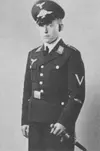
He followed the usual route of prisoners: to London for interrogation, then shipped off to Canada for the duration of the war. Back to England post-war and then back to Germany.


